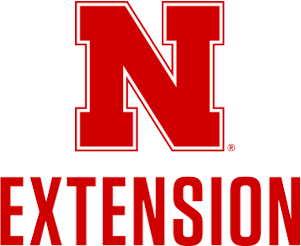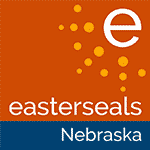![]()
Serving the Needs of Nebraska's Farm and Ranch Families Affected by Disabilities.
Frequently Asked Questions
Each year over 3,000 Nebraskans working in agriculture experience injuries that limit their ability to perform essential work tasks. Some agricultural workers acquire disabilities in off-the-farm accidents or through illness and health problems like heart disease, arthritis, or cancer. Older farmers often experience limitations, such as decreased vision and hearing or loss of strength. At times, increased disability related costs may limit the farm or ranch family's ability to manage financially.
If you or a member of your family have a disability and you:
- Reside on a Nebraska farm or ranch or
- Engage in farming, ranching, or a farm related occupation,
Nebraska AgrAbility may be helpful to you.
- Introduction
- Collaborative Partnerships
- Project Contact
- Financial Concerns
- Confidentiality
- Populations Served
- Service Delivery Area
- Services Provided to Individuals
Introduction
What is Nebraska AgrAbility?
Since 1995 Nebraska AgrAbility has been assisting people who are employed in agriculture who experience a disability or health related condition. This effort involves linking the University of Nebraska-Lincoln Extension with a nonprofit disability organization, Easter Seals Nebraska, to provide appropriate education and assistance designed to promote independence and success in production agriculture and rural living. Nebraska AgrAbility provides professional training, on-farm assessment, technical assistance, information dissemination and referral to other service providers.
Who has a disability?
For Nebraska AgrAbility, a person with a disability is defined as an individual with a physical, cognitive, or illness-related impairment that substantially limits one or more major life activities. Disabilities may be the result of injuries or chronic health condition or illness that interfere with daily activities. Types of disabilities vary and one person may have multiple conditions. Some examples of types of disabilities include, but are not limited to the following:
| Amputations | Multiple sclerosis |
| Arthritis | Muscular dystrophy |
| Back injury | Orthopedic injuries |
| Cancer | Parkinson's disease |
| Cardiac problems | Respiratory problems |
| Cerebral palsy | Spinal cord injury |
| Diabetes | Stroke |
| Hearing impairments | Traumatic brain injuries |
| Mental illness | Visual impairments |
| Mental retardation |
What about safety?
To perform an activity in an unsafe manner involves risk. The degree of risk is affected by personal factors, environmental factors and equipment factors. Nebraska AgrAbility helps individuals be aware of appropriate activities considering personal limitations and relevant circumstances. One of Nebraska AgrAbility's primary goals is to help the individuals prevent secondary injury.
What is assistive technology?
Assistive technology consists of practices, devices, tool, modifications, processes and a special knowledge of science and engineering that enable a person to perform a desired task. For Nebraska AgrAbility, assistive technology enables a person with a disability to complete desired tasks within an agricultural setting and home environment.
Collaborative Partnerships
Who are the funded partners?
USDA competitive grants are awarded to Cooperative Extension Services at 1862 and 1890 land-grant universities that partner with nonprofit disability organizations. The Nebraska AgrAbility partners are the University of Nebraska Extension and Easter Seals Nebraska.
What is the National AgrAbility Project?
The National AgrAbility Project is an example of a consumer-driven, USDA-funded program that provides vital education, assistance and support to farmers and ranchers with disabilities. Through the combined dedication and expertise of the Cooperative Extension Service and nonprofit disability organizations, AgrAbility helps thousands of determined individuals overcome barriers to continuing their chosen professions in agriculture.
AgrAbility was authorized in the 1990 Farm Bill and funded by Congress in 1991. Since the program began, competitive projects have been awarded to selected Cooperative Extension Services that have joined with nonprofit disability organizations to educate and assist agricultural workers with disabilities and their families. The National AgrAbility Project was reauthorized in the 1996 Farm Bill.
In addition to state-level grants, one national grant funds the National AgrAbility Project, which is directed by staff at the Breaking New Ground Resource Center at Purdue University in partnership with Goodwill Industries International, the Arthritis Foundation (Indiana Chapter), and the University of Illinois Urbana-Champaign. The National AgrAbility Project provides training, technical assistance, and information about available resources to state AgrAbility projects.
Project Contact
How can I contact Nebraska AgrAbility?
You may contact Nebraska AgrAbility by calling (800) 471-6425 (voice/tty) or by e-mail: neagrability@ne.easterseals.com
Financial Concerns
Is there a fee for services?
No fee is required for professional training, information, dissemination, technical assistance, on-farm assessment or educational resource materials. Professionals from Nebraska AgrAbility are available to assist farmers, ranchers, agricultural workers, and their family members.
Does Nebraska AgrAbility have money to help purchase assistive technology for individuals?
No, Nebraska AgrAbility cannot purchase assistive technology for clients.
Will you help me find funding?
Sources and amounts of funding available depend on circumstances. The Nebraska AgrAbility staff will make referrals to funding sources appropriate to your specific needs, if you so desire.
Will Nebraska AgrAbility make the necessary modifications?
Nebraska AgrAbility primarily provides professional training, information dissemination, technical assistance, on-farm assessment and referral to other service provides. In addition, referrals can be made to others more capable of adapting technical equipment.
How do I know if my Social Security benefits will change?
If you are receiving Social Security benefits, Nebraska AgrAbility will work with you on understanding the impact of work upon your benefits. They will assist you in understanding Social Security work incentive and options that may be available in your circumstance.
How much information do I have to share regarding personal finances?
You decide what information you are willing to share. People working with the program are professionals and will not gather unnecessary information, nor will they share information without your permission or violate your right to privacy.
Do you accept donations?
Nebraska AgrAbility will accept donations to support project activities. Donations are applied to support professional training activities, assistive technologies, display supplies, educational materials, and travel expenses.
Confidentiality
Will other people find out I have a disability?
Nebraska AgrAbility provides information to agricultural producers with disabilities and their family that will enable them to improve or restore agricultural productivity. Your neighbors may notice that you are able to perform tasks that you formerly were prevented from pursuing. If they ask how the recovery happened, we hope you will share your experience with them, but you are not required to do so. You may decide to mentor farmers with a disability in your community, and if so, you will become a valuable resource to others.
How many farmers receive services?
Federal funds received by the USDA require reports for public record so anyone may access the reported information. However the consumer identity, nature of disability, details of the on-farm assessment and financial information will remain confidential.
Populations Served
Who does Nebraska AgrAbility serve?
Any Nebraskan with a disability or health condition and who is engaged in farming, ranching or in other agriculture-related occupations is eligible to receive services. Or, they can be a family member of one who is engaged in an agricultural production job.
I don't receive funds from SSDI or SSI. Can I still receive services from AgrAbility?
Services provided are not linked to Social Security Disability Income (SSDI) or Social Security Income (SSI) benefits. Any Nebraskan with a disability or health condition and who is engaged in farming, ranching or in other agriculture-related occupations is eligible to receive services.
Service Delivery Area
Do I have to live on the farm or ranch to receive services?
No. Any Nebraskan who is engaged in farming, ranching or in other agriculture-related occupations and has a disability or serious health condition is eligible to receive services.
Are services available statewide?
The entire state is part of the program. Awareness-level presentations and on-farm assessments can be provided anywhere in Nebraska.
How can I receive AgrAbility services if I live in a state that does not have an AgrAbility Project?
The National AgrAbility Project will provide information and resources for people in states without an AgrAbility Project.
Will training be held in an accessible location?
Nebraska AgrAbility is committed to make every effort to ensure materials and services offered are accessible to all people with disabilities. Upon request, materials can be produced in an accessible format. Training sessions and outreach programs will be held in accessible facilities.
Services Provided to Individuals
What types of services are provided?
Services offered by the program include professional training, information dissemination, technical assistance, on-farm assessment, and referral to other service providers. In addition, a peer support network has been trained to visit with, and support, individuals and their family members.
How long will services be available?
As long as Nebraska AgrAbility's partners receive funding, services will be provided.
Nebraska AgrAbility is a joint effort of the University of Nebraska Extension and Easterseals Nebraska. This work is supported by AgrAbility grant #2022-41590-38127 from the USDA National Institute of Food and Agriculture. Any opinions, findings, conclusions, or recommendations expressed in this publication are those of the author(s) and do not necessarily reflect the view of the U.S. Department of Agriculture.



